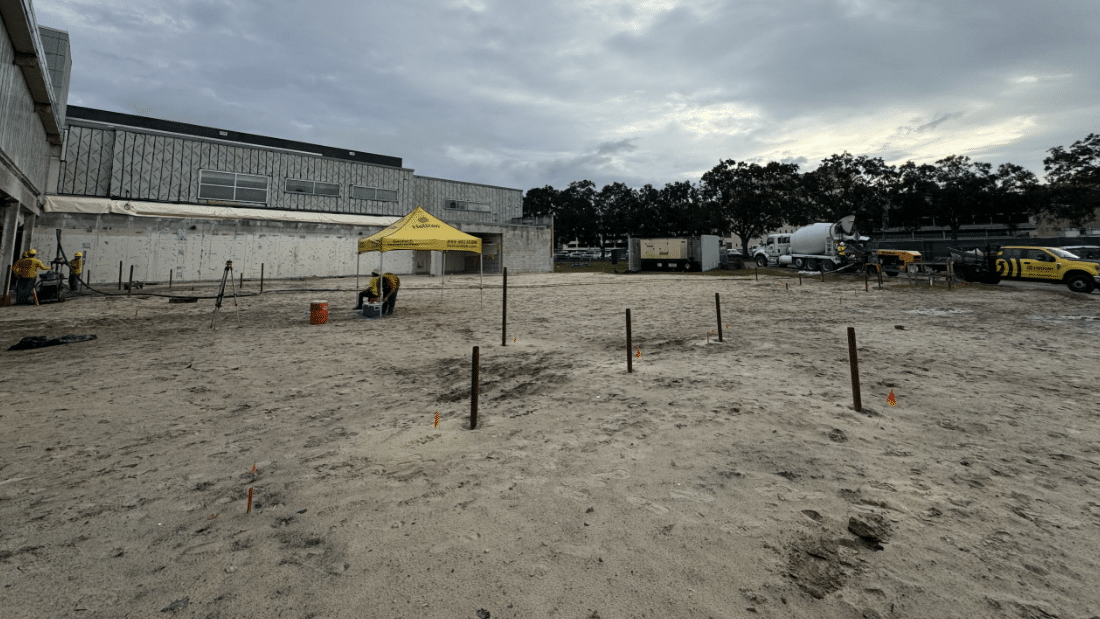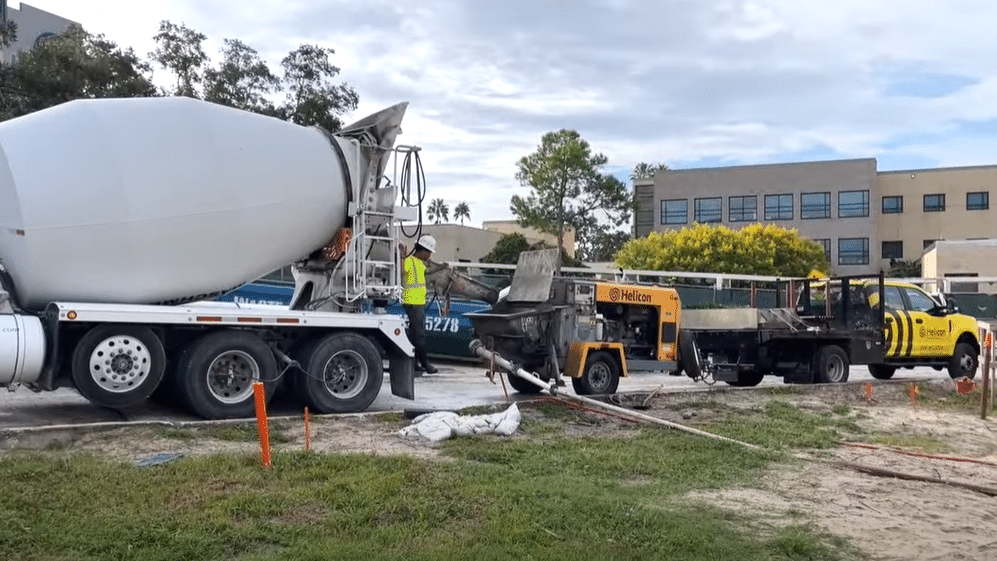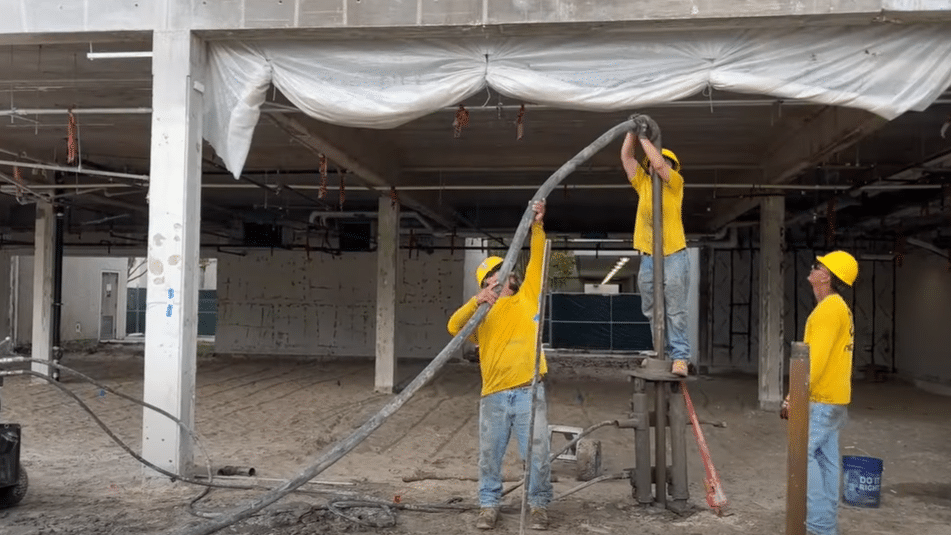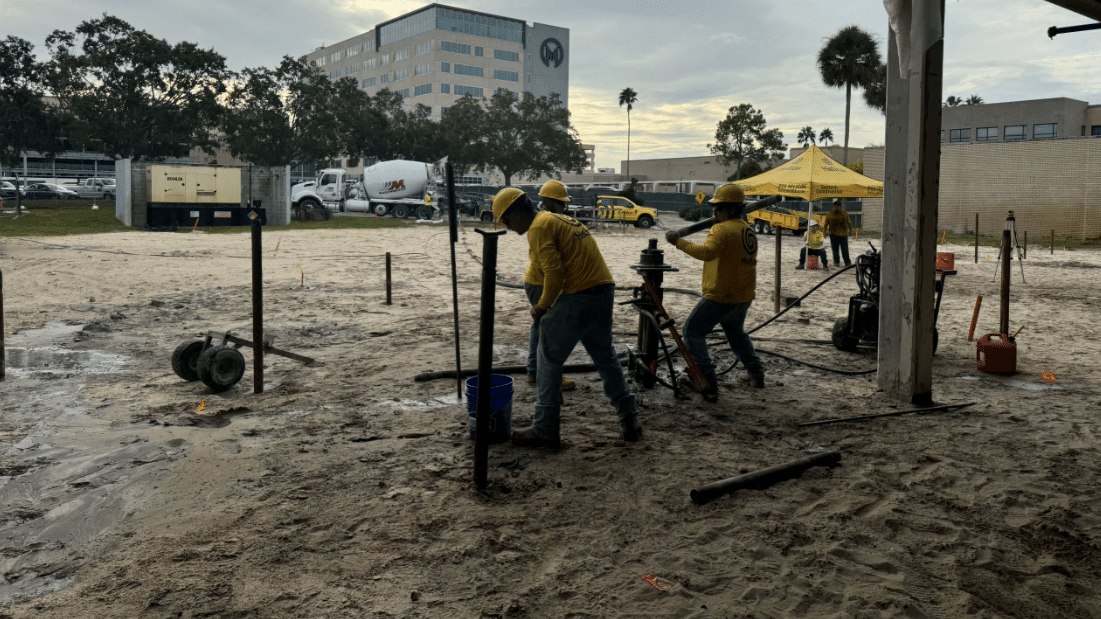Tampa
Client: University of South Florida
Market: Institutional
Solution: Ground Improvement
Services: Compaction Grout
The Project
The University of South Florida (USF) undertook the construction of a new nursing building on its Tampa campus. Helicon was contracted to ensure a stable foundation for the project. This case study examines the ground stabilization process implemented by Helicon using compaction grouting to address unstable soil conditions prevalent at the construction site. The project aimed to create a safe and secure foundation for the new nursing facility, ensuring its long-term structural integrity.
The Challenge
The primary challenge was unstable ground at the USF construction site, posing a significant threat to the structural integrity of the new nursing building. Unstable soil conditions in Florida presented a potential problem. Without proper ground stabilization, the building was susceptible to:
- Uneven settling and cracking
- Long-term structural damage and safety hazards
- Potential for costly post-construction repairs
Addressing these ground instability issues was a critical prerequisite before construction could commence.
The Solution
Helicon implemented a pre-construction ground stabilization solution using compaction grouting. This method was specifically chosen to address the unstable soils. The key elements of Helicon’s solution included:
- High-Pressure Concrete Injection: Helicon pumped concrete grout under high pressure into the ground. This filled voids in the soil and densified loose soil layers.
- Upward Staging: Grout injection was performed in stages, starting from the bottom and progressing upwards. This staged approach allowed for controlled compaction and ensured thorough treatment of the soil profile.
- Real-time Monitoring with Transits: Throughout the grouting process, operators used transits to meticulously monitor ground heave. This real-time monitoring provided immediate feedback, allowing for adjustments to the grout injection and ensuring optimal soil compaction.
- Customized Treatment Zones: Engineers conducted thorough soil testing to identify specific areas requiring stabilization. This allowed Helicon to target the compaction grouting precisely, maximizing efficiency and cost-effectiveness.
- Enhanced Load-Bearing Capacity: By compacting the soil, Helicon significantly improved its strength and load-bearing capacity. This created a solid and stable foundation, capable of supporting the weight of the new nursing building and preventing structural issues.
Benefits of Helicon’s Approach:
- Cost-Effective Pre-Construction Treatment: Addressing soil instability before construction proved more economical and less disruptive than attempting stabilization after the building was erected.
- Long-Term Structural Integrity: The enhanced soil strength and sinkhole mitigation provided a stable foundation, ensuring the building’s long-term structural integrity and minimizing the risk of future problems.
- Minimized Structural Risks: By proactively stabilizing the ground, Helicon significantly reduced the risks of uneven settling, cracking, and other structural issues that could compromise the building’s safety and usability.
- Expert Collaboration: Helicon emphasized their collaborative approach with engineers, ensuring the most suitable and cost-effective ground stabilization methods were implemented for the specific project requirements.
Helicon’s compaction grouting solution successfully transformed the unstable ground at the USF construction site into a solid foundation. This proactive and technically sound approach ensured the successful construction of the new nursing building, providing a safe and stable environment for future generations of USF nursing students.
FREE INSPECTION REQUEST





